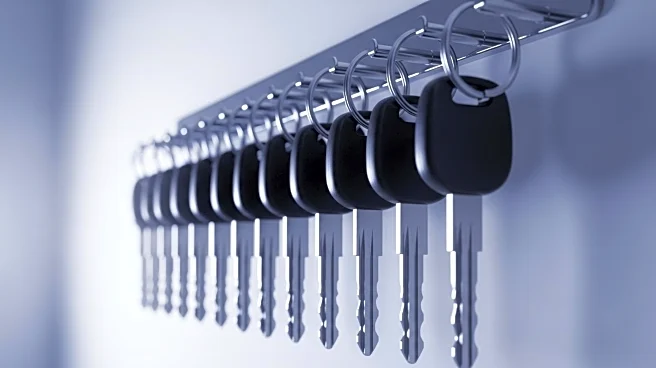What's Happening?
Auto loan delinquencies in the United States have reached alarming levels, with the nation owing $1.66 trillion in auto loans. A report from the Consumer Federation of America highlights that delinquencies, defaults, and repossessions are increasing, with subprime delinquency rates surpassing those seen during the 2008 financial crisis. The high cost of monthly car payments, driven by elevated interest rates, is a significant factor contributing to this trend. The typical monthly payment is $745, with 20% of buyers facing bills of at least $1,000. The situation is exacerbated by the impending expiration of the $7,500 EV tax credit, which could further strain borrowers.
Why It's Important?
The rise in auto loan defaults and repossessions signals broader economic challenges, as many Americans prioritize car payments over other essential expenses. This trend could indicate deeper financial instability within households, potentially affecting consumer spending and economic growth. The situation calls for policymakers to scrutinize the auto lending market and address exploitative practices that inflate costs for consumers. The impact is felt across various demographics, including younger buyers and those with above-average credit scores, highlighting the widespread nature of the issue.
What's Next?
Policymakers may need to intervene to address the exploitative practices within the auto lending market and provide relief to struggling borrowers. The disappearance of the EV tax credit could prompt further financial strain, necessitating action from federal regulators to prevent a worsening crisis. Consumers may also need to reassess their financial decisions, opting for more affordable vehicle options to mitigate the risk of default.











